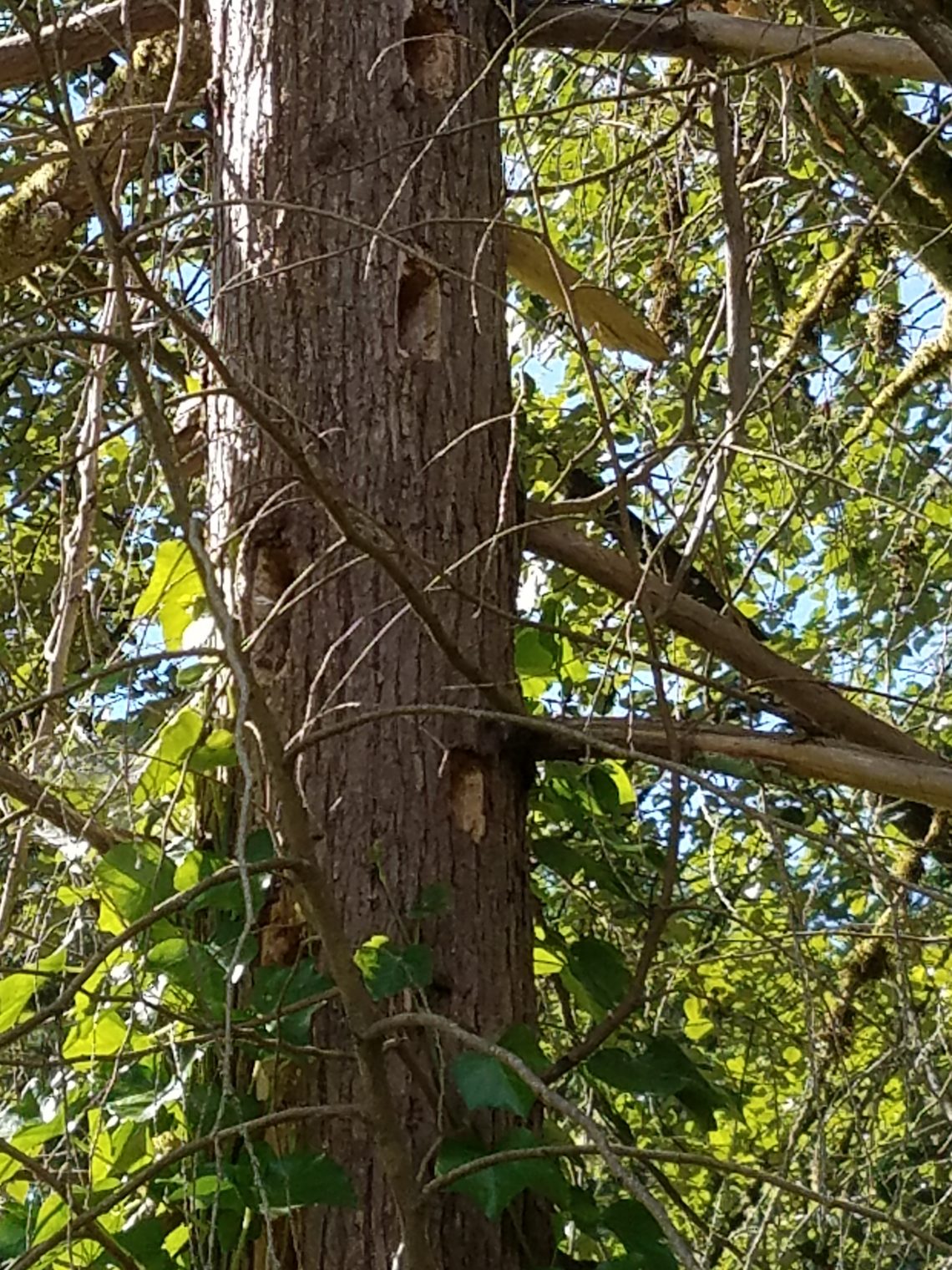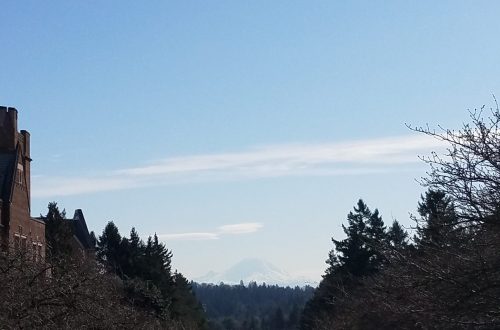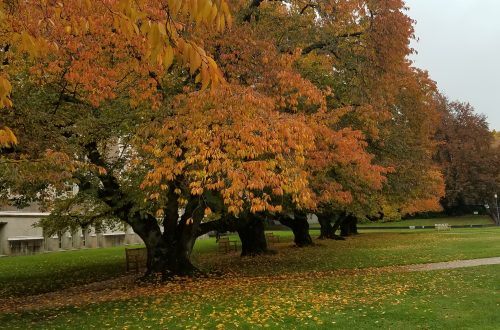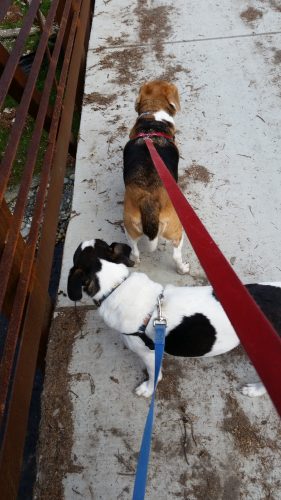
Pandemic Diary, Day 131
Today marks my 90th day (does not include weekends or holidays) working from home. Back in March, I commented that I expected to be working from home for roughly 3 months. We are now at almost 4 months, with no real end in sight. Maybe in September I will be back in the office a day or two a week? If campus opens even partially for classes, that is a possibility, but cases are on the rise again, so maybe campus will not open. I do not know. I do not think if anyone really knows, or will know, until September.
At the start of this, I had a very different picture in my head as to how this would all go, as evidenced by my earlier Pandemic Diary posts. You will note that I have gone quiet. The pandemic and quarantine have taken a greater toll than I had expected.
The most recent instances of police brutality in the midst of all this has sparked a greater response from the public than I think anyone expected. The protests, the demands for police reform, are still going. They have not stopped, and they should not stop. Systemic racism is itself a disease that the US has tried to “live with” instead of cure from the moment of our foundation. Police brutality is a co-morbidity with that, and one that causes death for far too many people. Both need to be honestly faced and addressed. We need to start working to treat and cure systemic racism in this country.
Either of these issues would be a lot. Together, they are almost overwhelming. And yet, the first has most likely led to our ability to fight the second in such a prolonged fashion. People who would otherwise be worn out from working 40+ hours a week, now have the time and the energy to devote to the fight. It has become an excellent outlet for people who were bored, seeking something productive to do. And this is productive. Changes are already happening, but the pressure has to be kept up. This is a fight that has been going on for centuries. We know from the past that if we let up, things will go backwards.
But none of this puts food on the table, pays the rent or mortgage, or provides child care. The pandemic is providing us with the energy to take on systemic racism, but it is also showing us so many of the weak points in our system. When money is not moving in our system, from consumers to companies to employees who are also consumers, our system fails. People who are not getting a paycheck cannot pay their bills, including rent. Landlords who are not getting rent cannot pay their bills. We are a system built on the backs of the lowest earners. And when those earners are not, in fact, earning, everything breaks.
And the question is, should our system be built that way? The lowest earners are the most fragile among us, but there are a lot of them. Our system is built on the backs of sheer mass, not strength. Would it not be better to figure out a better foundation, a better support. Perhaps we need to think of our system as an arch. Arches are incredibly strong, they support a lot, but the key to an arch is not the stones at the bottom of the arch, but the keystone at the top. Perhaps we should be restructuring to stop depending on the sheer mass of bodies at the bottom and instead take advantage of the strength of the keystone, so fully supported by and supporting the rest of the arch.
It is a lot. And I am one of the lucky ones, the privileged ones. I am in no danger of losing my job. I am in no danger of losing my house, not being able to put food on the table or pay my bills. I am able to donate to charity, to help out friends and family who need financial assistance. And yet, it is a lot.
I took an extra two days off for the 4th of July, to have five days in a row of not working. On the surface it seems a little silly. After all, my commute is 10 steps. I spend a good portion of my day staring at a screen whether I am working or not. And with C at work, what was the difference? And yet, it was a huge difference. I needed that vacation more than I have needed a vacation in years. And it was harder coming back to work on Tuesday than it has been in years. Because it is a lot.
It is a lot. And it is a lot that I cannot fix. I want to fix the world. I want this country to be a place that is safe for black and brown boys, that celebrates the achievements of girls in hijabs. I want this country to be a place that actually cares for the least among us, that prioritizes the health of the many over the wealth of the few. I want to fix it all, and I want to fix it NOW. Because NOW is not too fast, NOW is, in fact, too slow. How many years after the Declaration of Independence was written do we have to wait to have a system that actually recognizes that ALL men are created equal? Two hundred years is not too soon to finally live the promises that our country was built on.
But I cannot fix it, not on my own. I cannot make it all happen now. I add my voice to those calling for the changes we need. I vote. I give my money where I believe it will help. But I cannot fix it.
We can fix it. Sadly, not instantly, but we can fix it. But that requires more people to care about not just their family, not just their friends. It requires people to put our society over ourselves, and, in some cases, vote for things that are short term not in our own individual best interests, because in the long run, they will be in all of our best interests. We have to stop thinking in terms of getting more for ourselves but instead think in terms of getting more for all of us. We must revisit the lessons of preschool and relearn how to share. But people have to care as much about others as they do themselves for that to happen. And that is not exactly what our country was built on. That is not the American Dream or the American myth.
I have no idea how to make people see that having a society where everyone gets a piece of the pie means that we have the resources to make a bigger pie. But we have, for so long, told people the goal of being an American is to take as much pie for themselves as possible. And even those who have almost none believe, deep in their souls, that someday, they will have a bigger piece, and so they vote to protect the biggest pieces out there. Our aspirations are about individual success instead of societal success. And that is killing people. But I do not know how to make people see that. I do not know how to make them care about people they do not know, will never know, will never have to look in the eye. I do not know how, if the world has not already taught them this, to teach it to them. And it makes me sad.
And so that is a look inside my mind, if not my daily life, on this, the 131st day of the Pandemic in Washington state.



